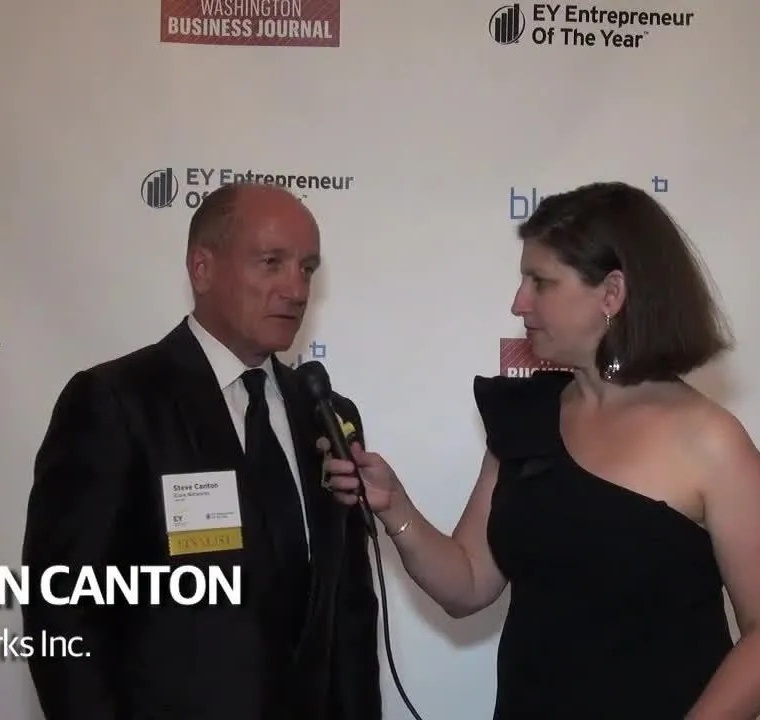Management Hacks to Increase Productivity
It doesn’t matter if you’re a corporate officer or an entrepreneur with a small start-up; it always helps to hone your leadership skills.
And while most great leaders are developed over time, you want the skills to be a better manager NOW.
So if you’re looking to shorten some of the most common learning curves, it simply makes sense to take advice from the best. Because while a smart person can learn from their own mistakes, a wise one can learn from the experiences of others.
To help give you an edge, we talked to CEOs and other corporate leaders, gathered their advice, and compiled a list of tips for maximizing your productivity.
Check out these ten management hacks to improve your business AND your life.
-
Don’t let your calendar control your life; control your calendar.
It’s crucial to achieve a balance between protecting your calendar and being available, says Anne Corley Baum, President at the Capital Blue Cross health insurance company and author of the “Small Mistakes, Big Consequences” series of executive coaching books.
“Be open to people who want to meet with you,” she says, “but block space in your calendar for strategy and thinking. That planning time is really important. Build it right into your calendar.”
When you are in charge, Baum asserts, your job is to lead, to control the vision. So if you don’t take time to strategize, she says, six months from now, you’ll be asking yourself, “How did I get here?”
At the same time, when it comes to building your career, it’s important to always take the meetings offered to you, Baum advises. “You never know what will come out of that meeting in your calendar,” she says. “It could be your next product idea, next great employee, your next great coach or mentor.”
Making time for those meetings allows you to build your network. And every good business person knows that it all comes down to who you know.
So, take a hard look at your calendar. Take a breath. Go over your day, your week, your month. Look for ways to balance meetings with planning time.
Think of your calendar as an effective way to make a plan, set a goal, and pursue it.
Now you’re running it, instead of it running you.
-
Remember that you hired smart people and trust them to get the job done.
When it comes to effective management, it’s important to give your team a mission and then to set them free.
“You can’t do it alone,” says Capital Blue’s Baum. “Your company will achieve more with an empowered team,” she says. “And people like it better too. If employees don’t feel respected and empowered, if they feel like you see them as dumb, …if they are micromanaged, …they will leave. They will get a job somewhere else.”
It’s easy to forget that micromanaging your team creates a tone of mistrust, denting morale and limiting the team’s capacity to grow.
Too much micromanagement also takes away from the bigger picture, Baum reminds us, which are is the company’s larger goals. While it may be challenging to step back and let those below you take the reigns, the payoff, in the end, is worth it.
You’ll have a team that learns to step up and be capable. And they will do it with less interference.
-
Prioritize innovation by setting up metrics to measure it.
Consider this. How many innovations per month are you implementing?
Before the pandemic, innovation was nice to have to achieve success, says Dr. Ted Sun, President of the Ohio-based Transcontinental University, which offers MBA and PHD to executives worldwide. Now, innovation, he says, is a necessity to survive.
The key to producing more of it, Sun says, is setting up metrics for measurement.
While many companies will talk about how creative they are, most executives cannot answer directly how many innovations their company creates in a month.
Sun describes how he recently worked with a large corporation (that we will call Company A) to change that.
In the first month of engagement, Sun and his team instructed Company A’s managers to host innovation meetings while also making system-wide changes that enabled creativity at all levels.
“By the end of the month, we achieved 0.83 ideas per employee,” he says. “By the third month, we were able to get every employee contributing with new ideas to advance the organization. With 1.26 ideas per employee, four innovations were realized.”
Think about the possibilities for your organization with a system like this in place. How many transformative products will you develop? Where will they lead your company? Your industry?
Imagine your organization consistently innovates like this, Sun says. You have created a system to mass-produce creativity. Your clients no longer see your organization as a generic vendor that provides a product but a business that helps change their lives for the better.
-
Make everyone feel a part of the team.
Remember that a company’s goals are achieved when they become the prime objective of everyone, from the receptionist to the VP.
“Leadership is simply the availability of an individual to coalesce the efforts of other individuals towards achieving common goals,” says Frederick Smith, CEO of FedEX. ‘It boils down to looking after your people,” he says, “and ensuring that, from top to bottom, everyone feels part of the team.”
For Smith, his four years in the marine corps left him with an “indelible understanding of the value of leadership skills” and just how leadership involves powering the whole team towards the same target.
As people climb up the corporate ladder, he understands, they have to be humble enough to accept input from those below them. And it can be especially hard for some to accept suggestions that come from a subordinate. But in fact, many of the most profitable ideas in business history were born this way.
Take the Frito-Lay company’s wildly successful Flamin Hot Cheetos, for example. This now-legendary snack food was the result of the then Frito-Lay CEO, Roger Enrico, taking a chance on the idea of one of the company’s janitors, Richard Martinez.
Martinez lamented that Frito-Lay did not carry a product that catered to Latinos. He came up with a proposal for a spicy, Latin-inspired Cheeto and called up the CEO’s office. Enrico, impressed by Martinez’s initiative, agreed to a meeting.
The rest is snack food history. Flamin Hot Cheetos exploded into one of Frito-Lay’s most successful product launches ever, and Montanez moved from a $4.00 an hour janitor job at Frito-Lay to the $20 million Vice President of Multicultural Sales.
Moral of the story?
Make everyone feel part of the team. Your company’s success or failure might just depend on it.
-
Do not discriminate.
More and more studies show that companies with a diverse workforce are more profitable. It’s not difficult to understand the research that tells us that a crew that is varied in gender, race, sexual orientation, and socio-economic and religious backgrounds will offer a more well-rounded outlook on business.
But for most, we seek comfort in being surrounded by others who are a lot like ourselves.
That makes those involved in the hiring process more likely to recruit people with backgrounds close to their own. This mostly unconscious hiring bias keeps our companies from moving forward.
After all, the nation is fast becoming more and more diverse. And those companies that stay homogeneous are likely to be left behind.
What’s different than you might not always be comfortable, but it’s time to get comfortable with being uncomfortable.
“Get uncomfortable to be successful,” says Stephen G. Canton, managing partner of Anacostia Ventures and former CEO of iCore Networks (Now Vonage).
“If you come in with a predetermined attitude of who can and who can’t fill a role, you won’t get anywhere. You better have motivated people in order to be a success. And those people may not look like what you expect them to look like.”
“Open up the hiring,” he adds, “Don’t prejudge. It takes more work to hold people back than to open your doors to a motivated and diverse workforce.”
Canton is certainly not alone in his vision. The simple fact is that it’s 2021, and it’s time to make inclusivity the norm.
Because at the end of the day, a diverse team is a successful team.
-
Create an environment where everyone feels safe.
The #metoo movement has created a culture where women are less afraid to expose sexual harassment in the workplace. What was once swept under the rug is now rightfully brought out into the light.
This global awakening to the damage that sexual harassment brings to women’s (and men’s) psyches and careers has transformed our work lives.
Managers who prey on those that they lead will pay the price, says Anacostia’s Canton. Not only does such behavior ruin the aggressor’s own career, but it hurts everyone around them. The predatory nature creates a culture of fear and mistrust, damaging the entire company’s esprit de corps.
“It’s simple,” Canton says, “respect the position you are in, or people won’t respect you.”
“That means that you need to stay focused on higher ideals and do what is right,” he explains. “Be accountable to yourself and the job you have. If you can’t do that, then you should not be here. Don’t risk the whole company for your benefit.”
“Think about your behavior and what it means,” he adds. “Remember that subordinates look to you as a model for how to be. Lead by example.”
-
Be on time.
This one sounds easy. But think about it. Can you be on time every day, day in and day out? Most of us are going to start having reasons to show up late as days turn into months. Being on time isn’t as simple as it sounds.
Which is why it’s so important, says Canton.
“If you are going to be able to do what we’ve hired you to do,” he says, “you’ve got to be there. We are trying to do the impossible, to build a company that competes with billion-dollar corporations. We’ve invested our own money in you. Every time we get a new customer, that’s a new job. Every time we lose a customer, that’s a job lost.”
Showing up on time, he says, shows commitment. It makes clear that you take your position seriously and understand its importance.
“In order to achieve the company’s collective goals,” Canton says, “you have to be on time. We all have to start at the same time.”
“Consistency,” he says, after all, “is the road to excellence.”
-
Have a higher purpose.
A purpose-driven organization is more likely to be a successful organization, says Ross Born, CEO of Just-Born, the manufacturer of Peeps, Hot Tamales, and Mike and Ike’s candies.
In Born’s opinion, when your organization has a clear mission statement and one that is bigger than just selling the widgets you manufacture, it creates something that is indeed larger than the product. There’s a positive energy that echoes through the entire company and out to your customers.
At Just Born, that purpose is made clear with the simple mantra, “We make life sweeter.” For Born, this relates to the way the company strives to make life better for their employees, the surrounding community, and the non-profits that they contribute to. That motivation to make life a little sweeter for all involved with Just Born is what drives Born himself.
“Everything that we do supports the purpose,” he says. “I must repeat that sentence, ‘We make life sweeter,’ to myself and to others 7 to 8 times a day. They aren’t just words. I live by it. We live by it.”
Don’t just say that your company has a higher purpose; Born advises, act on it. Be accountable to the purpose. Advertise it. Post it to your website. Make it a living, breathing part of the company.
When your business has a higher purpose, he says, you and your employees feel a part of something that isn’t just about commerce but a superior way of life.
And Born may be on to something big here. According to the United States Chamber of Commerce, employees at companies with a statement of higher purpose are happier, prouder of their company, and have greater trust in their leaders.
Add to that a recent report by Great Places to Work that declared that employees who feel their job has special meaning are 11 times more likely to stay with the organization. AND perhaps more importantly, the companies themselves have 400 percent more returns on the stock market than the S&P 500.
It sounds like having a higher mission statement is not just feel-good talk.
Purpose IS, in fact, profitable.
-
Put on your happy face.
Understand that people are watching you when you are a leader in the workplace; whether a mid-level manager or a company president, you’re on stage.
Your facial expressions, your gait, and your tone of voice matter. You set the tone for the mood of the company.
Just Born’s CEO Ross Born tells a story of how he made a frequent habit of putting on his white lab coat in the mornings and walking through the factories. He would observe, touch base with those on the floor, and get a feel for how things were operating.
One day, Born’s then-small children were a bit of a handful before work. Born got to the plant that morning and quickly threw on his lab coat, and made a stressed walk-through of the factory.
Later that day, he received more than one phone call asking him what was wrong. Were there going to be layoffs? The employees asked. Was the company in trouble?
In fact, nothing was wrong. The staff had just read his tense facial expression and assumed he had bad news on his mind.
“People will watch you,” Born says. “You’ve got to put on that happy face. When you are a leader, you’re on stage every day.”
“Understand who you are and the influence you have,” he says. “Even your body language communicates to those around you.”
As a matter of fact, 90 percent of the reaction to any message or information is through the visual communication of body language, according to the executive coach Paul Glover.
So while it can be a challenge to live in the spotlight, the positive side is that you can use that influence to encourage your team. Again and again, studies show that a happier team is a more productive one.
So take the time to center yourself when you walk on “stage” every morning.
And put on your happy face.
-
Be Humble.
You don’t know everything.
“The way I see it, humility is at the core of success,” says Andrew Sispoidis, CEO of Carbon-Ion Energy, the Manhattan-based energy storage innovator. “Ideally, you are the least informed person in the room.”
That kind of humility, Sispoidis asserts, keeps you able to ask the right questions, and more importantly, to be open to the answers. Unrestrained hubris, on the other hand, gets in the way of success.
When a CEO thinks that a certain task is beneath him or her, he says, the rest of the company feels it. But the key to leadership is doing, not saying or pointing. Rolling up sleeves and getting involved is an important part of what earns the trust of a team.
“Remember that people are allowing you the privilege of being their leader,” Sispoidis says. “Leadership, when it comes down to it, is service. Service to the people you are leading.”
“Humans are emotional creatures,” he adds. “There is a need for human beings to assert a role in the process, so leave the door open for that. Everyone should have a voice and feel empowered. And truly, it is the people at the bottom of the organization who are doing the real work. They have their ears to the ground and can sense changes in the wind.”
Research supports the role of humility in leadership too. Studies show that humble leaders have more influence, attract better people, and earn more loyalty than those who make displays of ego and power.
Innovation doesn’t stand alone, Sispoidis says. Listen to your team. Learn. Adapt. Grow. And stay humble.
“Success is a lousy teacher,” reminds Bill Gates, co-founder of Microsoft. “It seduces smart people into thinking they can’t lose.”




